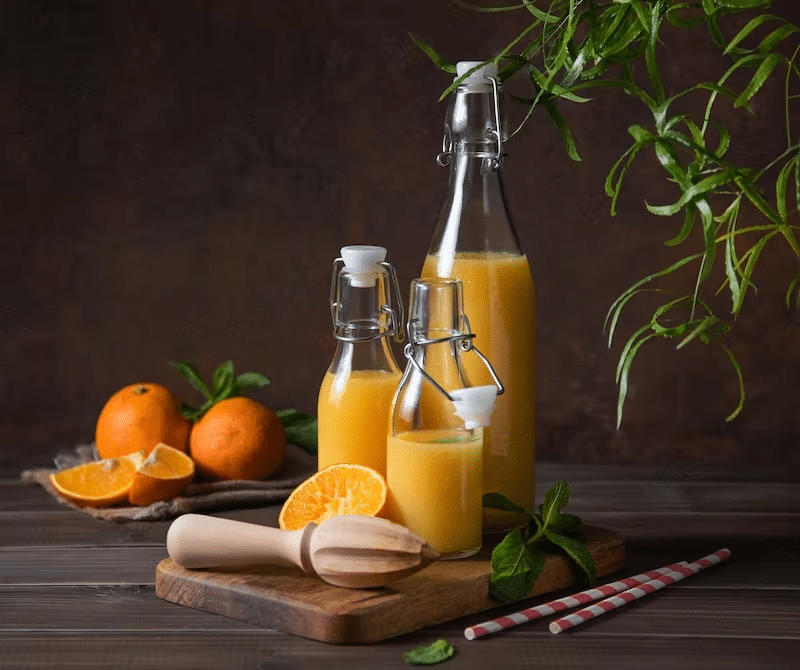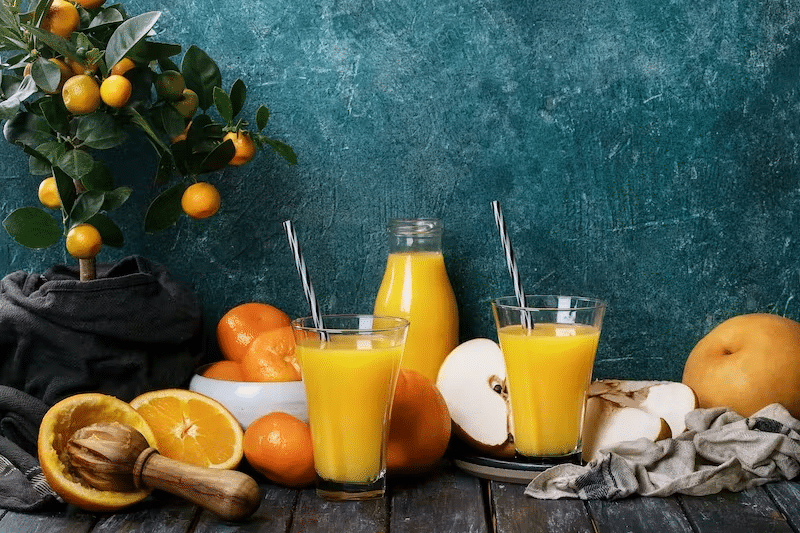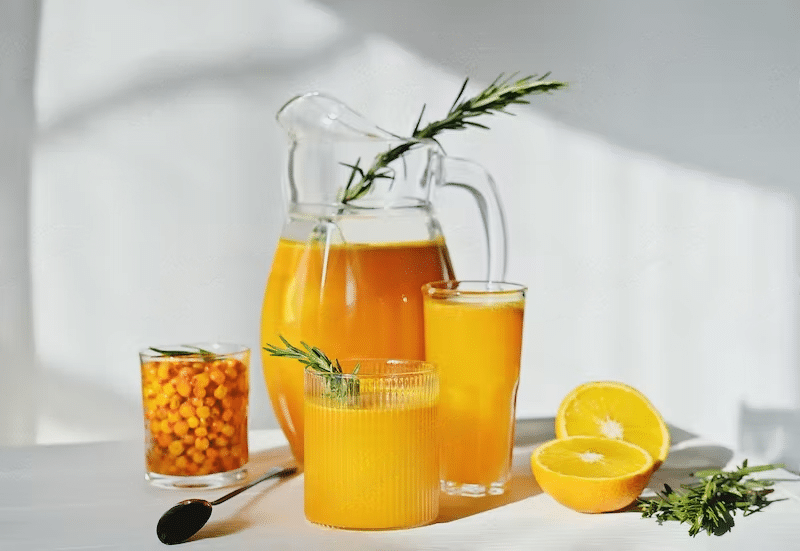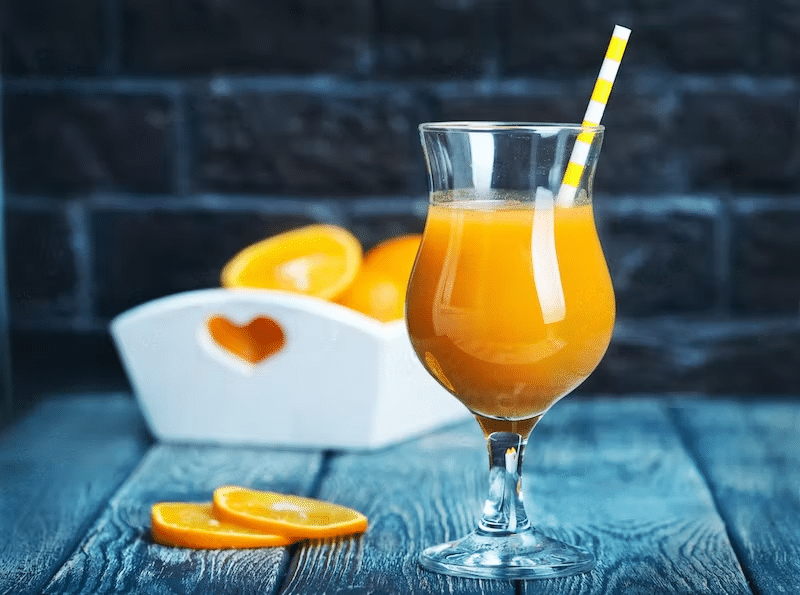
Orange is a popular ingredient in many dishes and beverages, adding flavour to foods and drinks. It can also be used to make a fresh orange juice concentrate that can be used for juicing or drinking purposes.
It is a beverage produced from the rind of citrus fruit, specifically oranges. The juice is extracted by squeezing or pressing.
It has a distinctive taste and aroma. It is also used as food and beverage in many countries outside of Europe, such as India and China. Orange juice is acidic, so it must be sweet to use in a beverage.
Oranges are one of the most popular fruits in the world, and they come in various types.
Depending on where you live, you may have access to different types of oranges. Here is a list of some of the most common types of oranges:

Orange juice is a popular beverage enjoyed by people around the world. It is made from freshly squeezed oranges and has various health benefits.
Here are some benefits of orange juice:
Orange juice is a popular beverage that can be enjoyed at any time of day.
The main ingredients in orange juice are:
Sometimes other citrus fruits, such as lemon juice or limes.
Making orange juice, with a blender:
Making orange juice with a handheld juicer is a great way to enjoy fresh, healthy juice without using a bulky electric juicer.
The process is simple and requires minimal equipment.

Storing orange juice properly is essential to ensure it stays fresh and tasty. Orange juice can be stored in the refrigerator, on the countertop, or in a cool, dark place.
If you plan to drink your orange juice within a few days of purchase, store it in the refrigerator. Place it in an airtight container or pitcher and keep it tightly sealed. It will last for up to four days in the refrigerator.
If you don’t plan o drink your orange juice right away, you can store it on the countertop. Place it in an airtight container or pitcher and keep it a room temperature. I will last for up to two weeks on the countertop.
If you want o extend the shelf life of your orange juice, you can store it in a cool, dark place such as a pantry or cabinet. Place it in an airtight container or pitcher and keep it sealed tightly. It will last for up to six months when stored properly.
If you have any leftover pulp after making orange juice, you can do a few things with it.
Leftover orange peel can be used in a variety of ways. It can be used to make a flavorful syrup, added to baked goods for flavor and texture, or even used as an ingredient in homemade cleaning products.
Leftover orange peel can be used in a variety of ways. It can be used to make a flavorful syrup, added to baked goods for flavour and texture, or even used as an ingredient in homemade cleaning products.

Orange juice is a classic and refreshing beverage that can be enjoyed any time of the day.
While it’s delicious on its own, you can also mix in other fruits to create unique and flavorful combinations. Here are some ideas for other fruits that can mix in orange juice:
Peach – Peaches add a sweet and juicy flavour to orange juice, making it perfect for a refreshing summertime drink.
Making orange juice at home is easy and requires only a few simple ingredients. With the right supplies and proper storage techniques, you can enjoy fresh, healthy orange juice any time of the year!
Was this article helpful? Let us know in the comments.
Obtain a bowl and a fork. With the fork’s tines, gently poke the sliced surface all over. Then, while holding the citrus in one hand, choose a location near the fruit’s centre, insert the fork, and twist it to release the juice into the bowl below.
Use sugar, honey, or any sweetener if your orange juice uses extra sweetness. You may also attempt to flavour the orange juice with a pinch of salt. The salt highlights the sweetness of the orange juice.
Acid is present in orange juice, while casein is present in milk. They both cause the dairy to curdle and the starchy cereal’s enzyme to be destroyed. Have fruit juice at least an hour before or after the cereal to avoid this.
Pearl Lemon Juice is a part of the Pearl Lemon Group. We also own Bubble Tea, Matcha, and Coffee beverage café’s in Fulham and Marleybone!
© All Rights Reserved | Company Number: 10411490 | VAT Number: 252 7124 23 | Sitemap